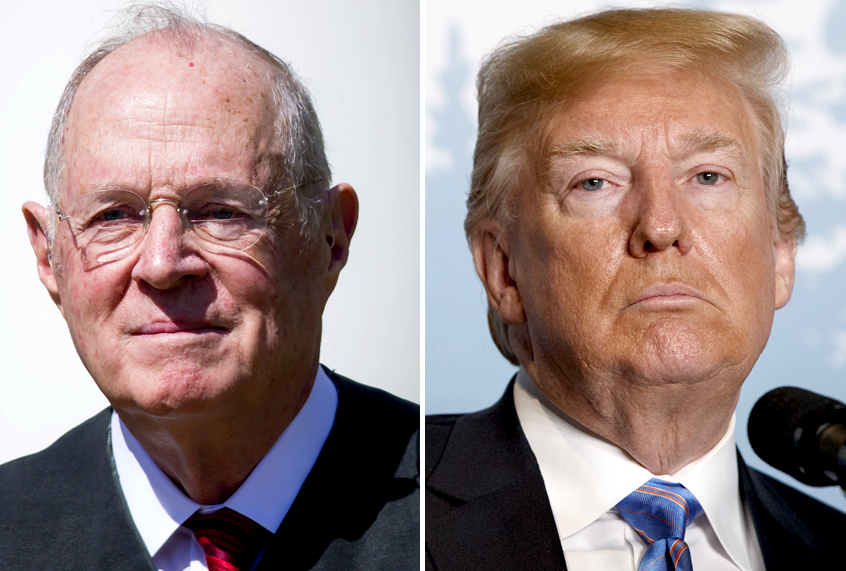Justice Anthony Kennedy announced on Wednesday that he would be stepping down from the bench after more than 30 years on the nation’s highest court.
The retirement is effective July 31, Kennedy said in a letter to President Donald Trump on Wednesday.
Kennedy’s retirement comes roughly one year after President Donald Trump nominated Justice Neil Gorsuch to the nation’s highest court. His retirement means Trump will get a second chance to name a nominee to the Supreme Court, securing the conservative lean of the bench for a generation.
Following the news of Kennedy’s retirement, Trump said he is “a man I’ve known for a long time and a man I’ve respected for a long time.” He called him a justice who had “tremendous vision” and “tremendous heart.”
“He will be missed,” Trump said.
The president also noted his administration will immediately “begin our search for a new justice of the United States Supreme Court.”
U.S. Senate Majority Leader Mitch McConnell said the Senate will confirm Justice Kennedy’s successor this fall. The nomination battle will likely ignite significant controversy on Capitol Hill as it comes just a year after Republicans changed the rules of the Senate in order to ensure the confirmation of Justice Neil Gorsuch.
A senior White House official told CNN that Trump will push for the swift confirmation of a new Supreme Court justice “before the midterm elections.”
Kennedy’s legacy on the court had might have been cemented in 2015, when the court issued its decision in Obergfell v. Hodges, the case that gave same-sex couples the right to marry nationwide.
Kennedy, who has written many of the court’s decisions establishing laws to protect and expand LGBTQ rights, said the decision was based on a fundamental right to marry and the equality that must be afforded to gay Americans.
“Under the Constitution, same-sex couples seek in marriage the same legal treatment as opposite-sex couples, and it would disparage their choices and diminish their personhood to deny them this right,” Kennedy wrote.
His legacy could be undermined once Trump and a Republican-controlled Senate, who are opposed to LGBTQ rights, appoint his replacement.
On other matters, though, Kennedy was a reliable conservative vote.
BuzzFeed News’ Supreme Court Correspondent Chris Geidner noted, “it was Kennedy who authored the court’s opinion in Citizens United. … Kennedy regularly sided with the conservative bloc in favor of corporate interests.”
This week, Kennedy voted to uphold Trump’s travel ban. He wrote separately in what turned out to be his final note.
“The First Amendment prohibits the establishment of religion and promises the free exercise of religion. From these safeguards, and from the guarantee of freedom of speech, it follows there is freedom of belief and expression,” he wrote. “It is an urgent necessity that officials adhere to these constitutional guarantees and mandates in all their actions, even in the sphere of foreign affairs. An anxious world must know that our Government remains committed always to the liberties the Constitution seeks to preserve and protect, so that freedom extends outward, and lasts.”
President Reagan nominated Kennedy to the Supreme Court in November 1987. The Senate swiftly approved his nomination, without a single senator opposing the final vote on Feb. 3, 1988: 97-0.

